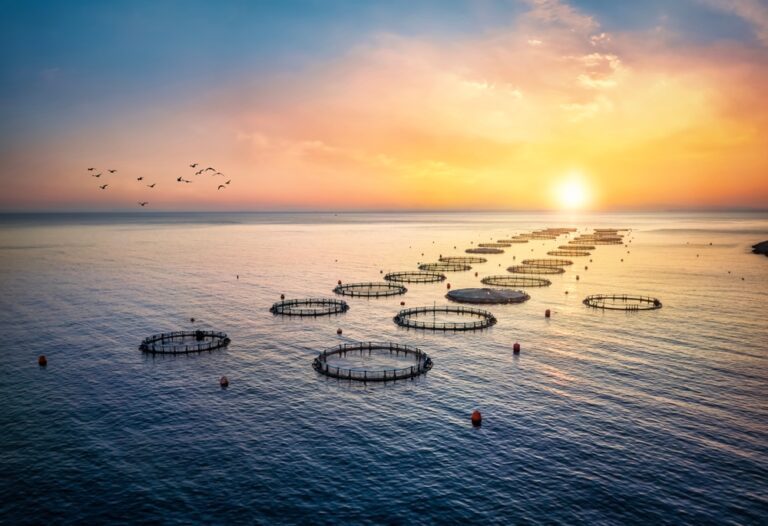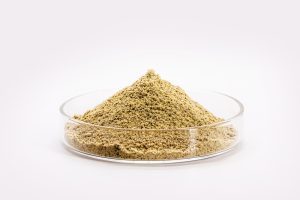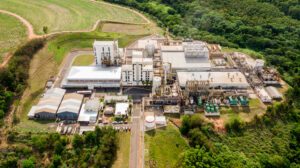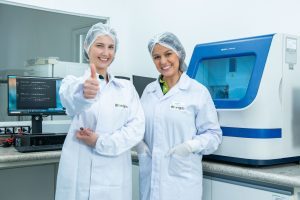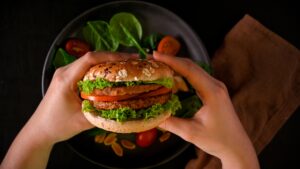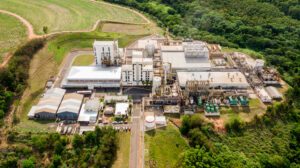Sustainability has become a fundamental pillar across various productive sectors, including aquaculture and other industries, in recent years. This movement is driven by the growing awareness of the importance of preserving the environment and mitigating the impact of industrial and agricultural activities on ecosystems. However, achieving sustainability requires a significant commitment to work and investment.
Adopting sustainable practices and systems emerges as a strategy to promote a more responsible approach to aquaculture. This means implementing methods that, in addition to generating revenue, optimize the use of capital and natural resources, contributing to human development and environmental preserachieving sustainability requires a significant commitment to work and investment.
vation.
Consumers are already reflecting this need in their purchasing habits, demanding higher-quality foods with ethical and sustainable origins. According to a Mintel report, many consumers associate sustainability with personal health, with 62% of Americans believing that sustainability in fish and seafood products is important for health¹. Additionally, 74% of fish buyers in the U.S. consider it essential to purchase products certified as responsibly sourced².
In this context, the One Health approach stands out as fundamental. This integrated vision promotes human, animal, and environmental health in an interconnected manner, encouraging more sustainable production practices and proper animal care. As a result, there is a direct impact on the nutritional quality of the foods consumed by humans. For more details on the topic, read our full article.
THE ENVIRONMENTAL IMPACT OF AQUACULTURE
It is crucial that aquaculture be practiced sustainably for it to be viable in the long term. Responsible management of aquaculture activities can turn this practice into an important driver of local socio-economic development without compromising present and future generations. In contrast, when fishing is conducted unsustainably, it can lead to increased unemployment and worsening environmental crises. Sustainable aquaculture, however, has the potential to mitigate some global economic and social issues, especially when compared to extractive fishing.
Achieving sustainability in aquaculture requires a thorough evaluation of systems, management techniques, and emerging technologies. Fish farming based on environmental, economic, social, and cultural sustainability principles is the most effective approach to ensure the sector’s success and longevity.
FISH NUTRITION
Your role in the nutritional management of fish, including feed formulation, is crucial. It plays a decisive role in the environmental impact of fish farming, especially in intensive production systems. The main sources of pollution in these systems are uneaten feed and fish feces.
Phosphorus (P) and nitrogen (N) are critical components of aquaculture waste that can cause significant eutrophication in water bodies (Green et al., 2002). Algal blooms in eutrophic environments, for example, can induce toxicity in aquatic organisms and deteriorate aquaculture products due to the presence of “off-flavor” in fish fillets, caused by by-products from nitrogen-fixing algae metabolism, such as Anabaena sp. (Barak et al., 2003; Beveridge & Phillips, 1993; Coloso et al., 2003; Kibria et al., 1997).
Therefore, adjusting dietary levels of phosphorus and nitrogen to meet fish’s nutritional needs and using highly digestible feeds are essential practices to avoid excessive mineral losses and consequent water pollution. In this context, additives that improve digestibility, such as Biorigin’s ActiveMOS, are highly desirable.
After all, water is the most valuable natural resource for the survival of all living beings on the planet, and the deterioration of its quality in farming systems affects both fish performance and the productivity and profitability of production systems (Beveridge & Phillips, 1993; Tacon & Forster, 2003).
Therefore, sustainable development in aquaculture must ensure the preservation of natural resources and be technically sound, economically viable, and socially acceptable.
BENEFITS OF ACTIVEMOS – MANNANOLIGOSACCHARIDES (MOS) IN PROTEIN DIGESTION
Mannanoligosaccharides (MOS) have shown promising results in fish feeding, particularly in protein digestion. When supplemented with MOS, fish exhibit more efficient digestion, which may be linked to a more favorable intestinal environment. This helps improve the absorption of essential nutrients present in the diet, such as amino acids.
Biorigin’s ActiveMOS — mannanoligosaccharides (MOS) —in fish diets represents a significant advancement in nutrition, offering promising feed efficiency and fish health benefits. Studies show that MOS improves protein digestibility, optimizes nutrient absorption, and reduces waste excreted into the water. As a result, there is a significant reduction in aquatic effluent pollution, contributing to a lower environmental impact in intensive aquaculture.
Additionally, the inclusion of ActiveMOS in diets helps modulate the fish’s intestinal microbiota, promoting a more balanced environment. This prebiotic effect of ActiveMOS supports the sustainability and profitability of farming systems.
By improving digestibility and nutrient absorption, the use of 1 ton of MOS in tilapia feed can reduce the release of 179 kg of phosphorus and 733 kg of nitrogen into the water of farming environments. This reduced residual load in production systems directly contributes to environmental, social, and economic sustainability.
João Koch, Global Technical Manager at Biorigin, highlights the importance of MOS in improving fish performance: “With the increasing need for intensive production systems, where producers must farm more fish in increasingly limited spaces, additives have become indispensable solutions on farms. Including ActiveMOS in feed formulations are highly desirable as a zootechnical additive to enhance animal performance. In addition to improving production performance by directly influencing a healthier intestinal environment through its action in agglutinating pathogenic bacteria and serving as a substrate for probiotic bacteria, its critical role in ingredient digestibility and the consequent reduction in pollutant excretion has been discussed in this article.”
In summary, incorporating ActiveMOS — mannanoligosaccharides in fish diets improves feed efficiency, reduces environmental impact, and promotes animal health.
DISCOVER ACTIVEMOS
ActiveMOS is Biorigin’s prebiotic solution, rich in mannanoligosaccharides (MOS). It promotes the growth of beneficial bacteria and minimizes the proliferation of pathogenic bacteria in the intestine.
Derived from the yeast cell wall through a primary production process (pure culture), ActiveMOS is characterized by its high availability of cell wall compounds, ensuring greater functionality. Its main benefits include:
- Promotes the growth of beneficial bacteria;
- Balances intestinal microbiota by agglutinating pathogens;
- Preserves the integrity of intestinal barriers;
- Improves performance and increases animal productivity.
To learn more about ActiveMOS and request a sample, click here!
BIORIGIN
For over 20 years, Biorigin has leveraged its biotechnology expertise to optimize the yeast fermentation process, developing innovative solutions that ensure the nutrition and performance of fish and shrimp.
“In addition to the role of ActiveMOS (mannanoligosaccharides) discussed in this article, Biotide Extra (dietary nucleotides), which promotes cell multiplication, also contributes to a more sustainable system, resulting in greater weight gain, lower feed conversion ratios, and shorter production cycles. We can also highlight the essential role of MacroGard (purified beta-glucans). This natural immunomodulator acts directly on animals’ defense systems, reducing pathogenic infections, improving wound healing, and serving as an excellent vaccine adjuvant. With all these characteristics, the combination of ActiveMOS, Biotide Extra, and MacroGard is considered the ideal partnership for a more sustainable aquaculture, which is the essence of the Biorigin Fish Program,” adds João Koch, Biorigin’s Global Technical Manager.
Visit our website to learn more about Biorigin, our products, and our yeast and yeast extract solutions.
SOURCES:
- *Bibliographic references available upon request


